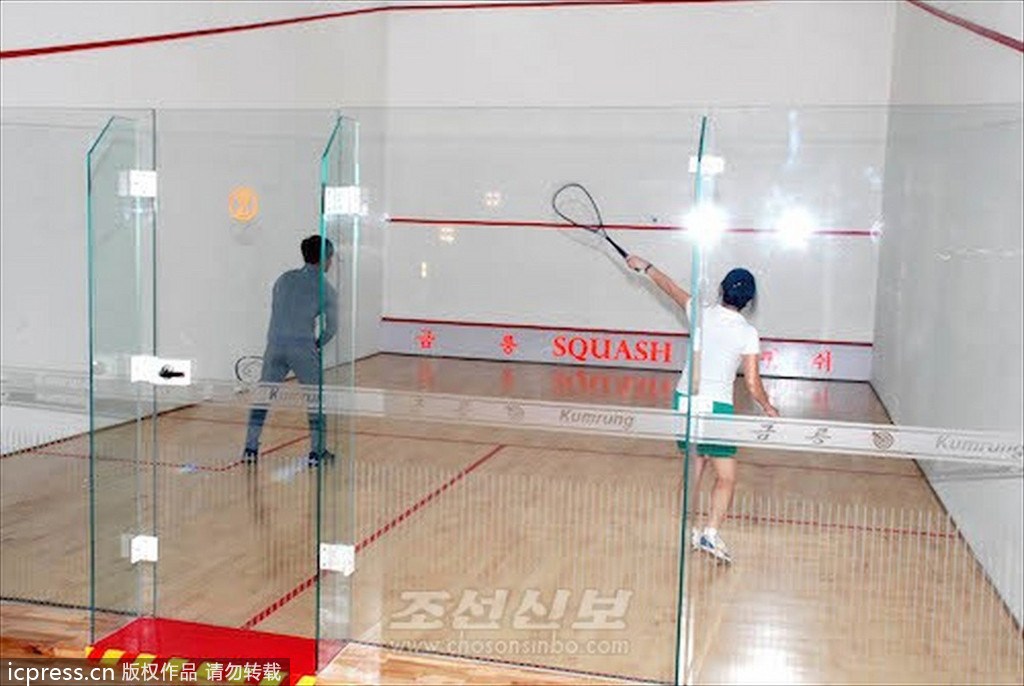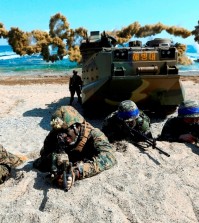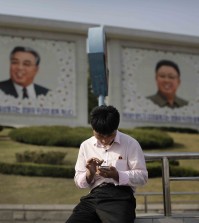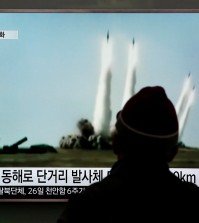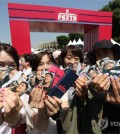- California Assembly OKs highest minimum wage in nation
- S. Korea unveils first graphic cigarette warnings
- US joins with South Korea, Japan in bid to deter North Korea
- LPGA golfer Chun In-gee finally back in action
- S. Korea won’t be top seed in final World Cup qualification round
- US men’s soccer misses 2nd straight Olympics
- US back on track in qualifying with 4-0 win over Guatemala
- High-intensity workout injuries spawn cottage industry
- CDC expands range of Zika mosquitoes into parts of Northeast
- Who knew? ‘The Walking Dead’ is helping families connect
N. Korea incorporates sports into everyday life to boost productivity
BEIJING, Feb. 19 (Yonhap) — North Korea is in a “heated sporting zeal,” a Pyongyang official said, as it encourages its people to take up sports as a means of boosting industrial output and strengthening national defense.
North Korea’s young leader Kim Jong-un, known as an avid basketball fan, has put great emphasis on promoting sports since he took power in late 2011. The country has recently opened its only luxury ski resort, Masik Pass, as one of his pet projects and hosted former NBA star Dennis Rodman to hold an exhibition match in Pyongyang.
“The heated sporting zeal in the whole country bolsters production and construction, and this is the current reality in (North) Korea,” Ri Chi-ung, vice-director of the Mass-based Sports Department of North Korea’s Ministry of Physical Culture and Sports, said in a published interview with a North Korean magazine, called Korea Today, which was seen in Beijing on Thursday.
In its February edition, the English-language magazine quoted Ri as saying that North Korea has set up a new sports-exclusive government agency, called the National Sports Guidance Committee, to promote sports among its people.
All provinces, cities and counties are being encouraged to promote sports such as football and basketball at workplaces, Ri said in the article.
“People have growing interest in sport through mass-based sporting activities, and they find themselves do their work better amidst the sporting zeal,” Ri said. “And it gives full play to collectivism, and the love for their working places and home villages is going up remarkably.”
Ri claimed that North Korea’s sports drive helps develop the country’s economy.
“At the Pyongyang Electric Cable Factory 326 the managers are taking the lead in mass-based sporting activities and the workers are joining in the campaign as one,” Ri said. “Thus, they feel more pleasant at their jobs and the spirit of helping and leading one another forward is prevailing in the factory. All this gives great energy to the effort to fulfill the national economic plan.”








